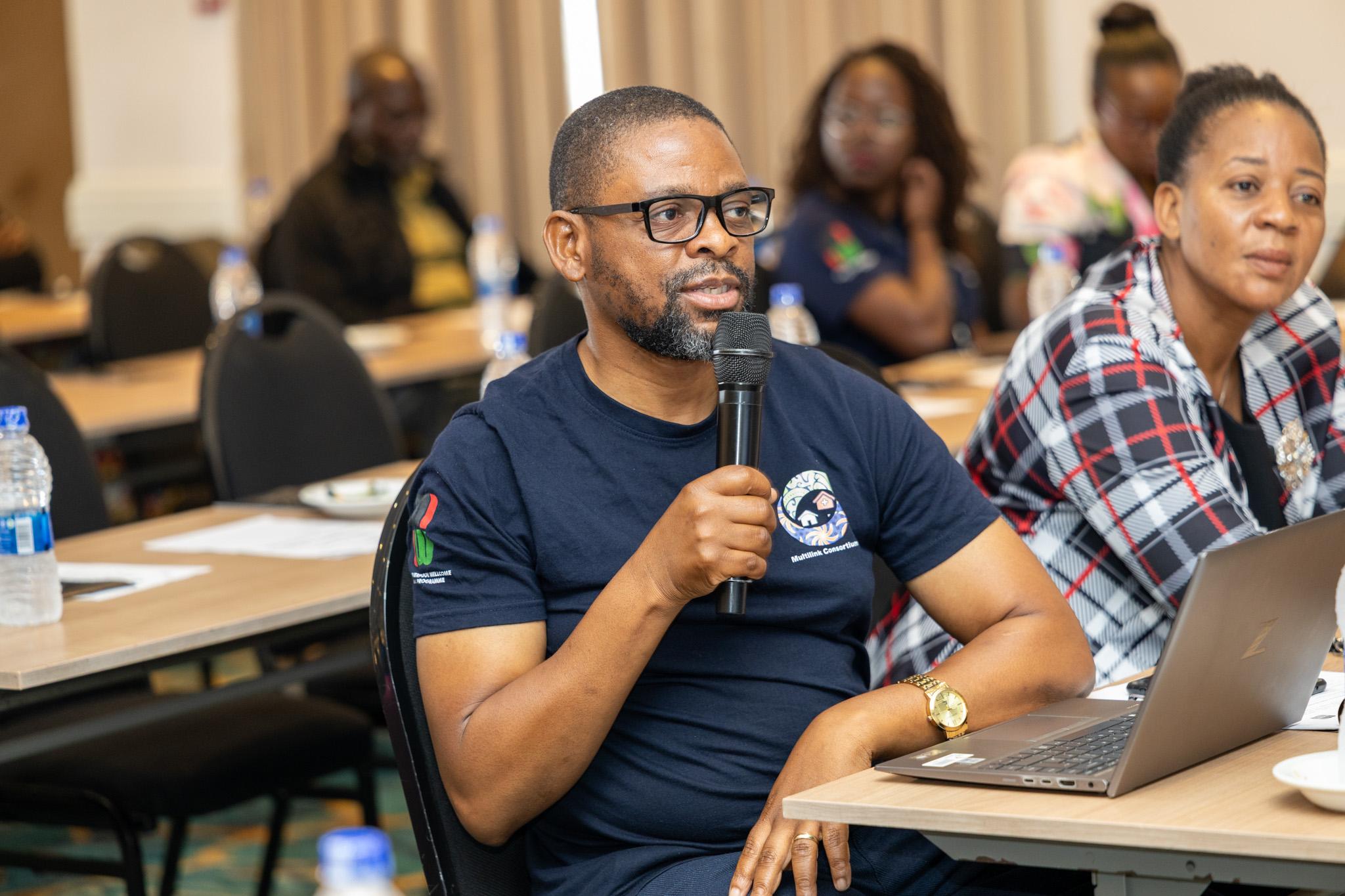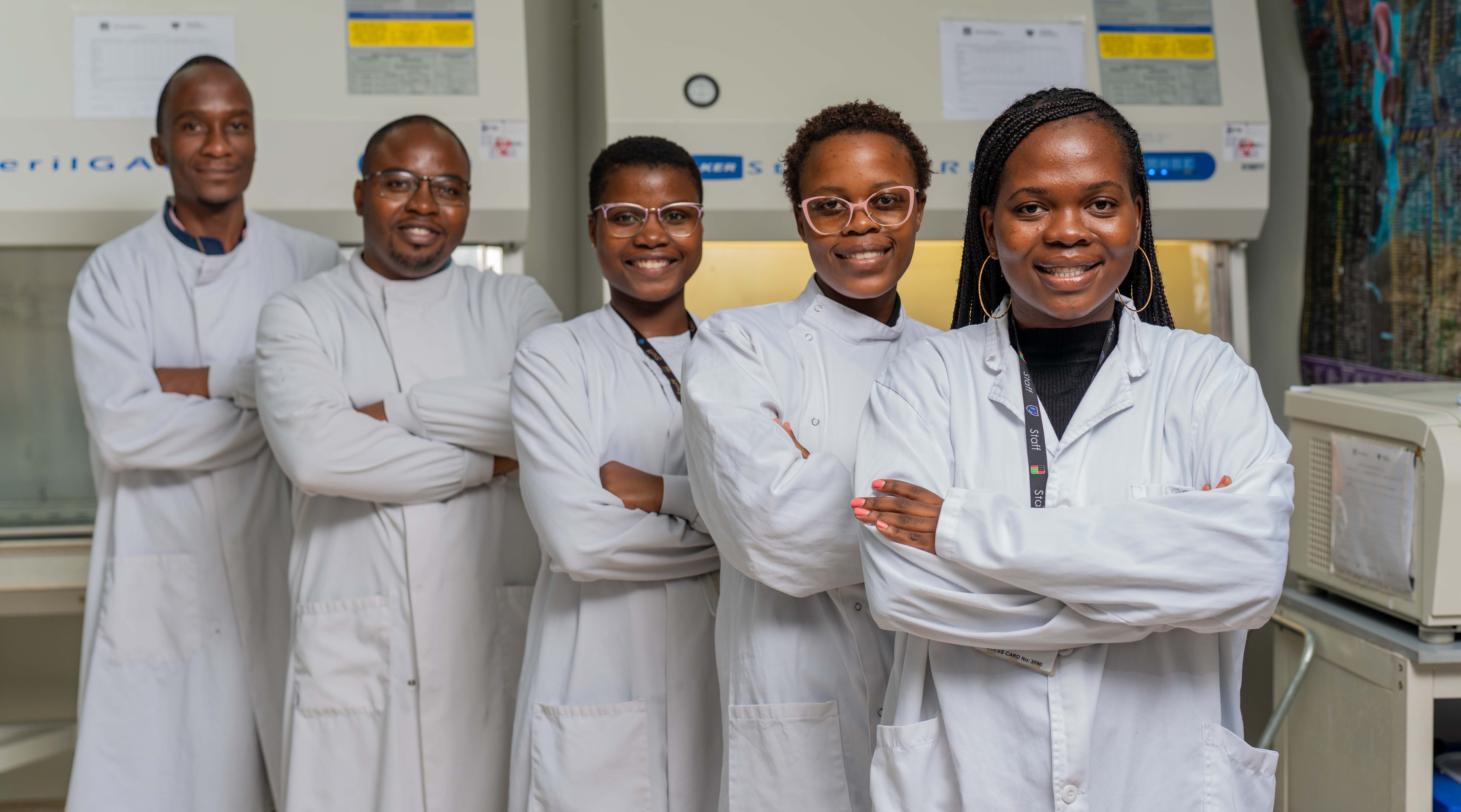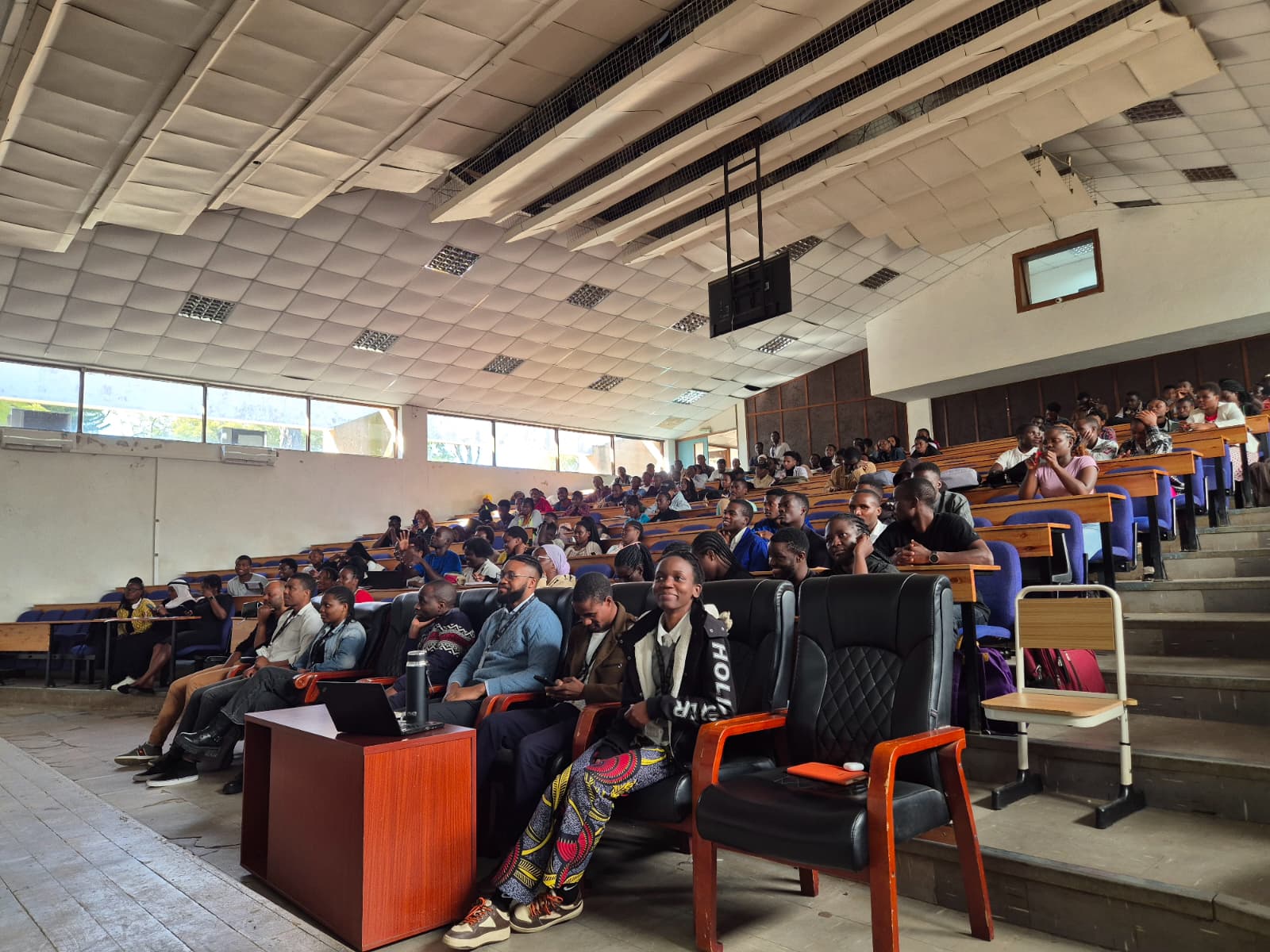Dr. Latif Ndeketa, a member of the Malaria Research Group, recently attended the Pharmacovigilance (PV) Stakeholders meeting in Lilongwe. Latif was recently appointed to serve on the National Adverse Events Following Immunisation (AEFI) and Adverse Drug Reaction (ADR) Review Committee. The committee is a newly formed Technical Working Group that will provide support to the National Pharmacovigilance Centre of the Pharmacy Medicines and Poisons Board (PMPB). The committee will report to the Medicines Committee of the PMPB.
The research group, in collaboration with the College of Medicine, will conduct the GSK sponsored RTS,S/AS01 malaria vaccine Phase IV set of studies in Malawi and partner in the WHO led pilot implementation programme of the malaria vaccine in Malawi. Latif, being closely involved in both projects, is thus well placed to serve this new Technical Working Group.
The meeting which was titled The enhanced pharmacovigilance capacity building project for Sub-Saharan Africa (SSA) meeting: Malawi stakeholder meeting, was organised by Ministry of Health (MoH)-PMPB, PATH and Glaxo-Smith-Kline pharmaceuticals plc (GSK). The main objective was to provide an update on the status of this MoH led PV initiative in Malawi to stakeholders, as part of an 18-month pilot conducted in Malawi, Ivory Coast and Democratic Republic of Congo, supported by PATH and GSK.
During its first 7 months, the project team has developed and delivered two PV training packages to support the Extended Programme for Immunisation (EPI). The first, an intensive 2 days training of EOI coordinators (EPI focal points) in Malawian districts, has already been used to train 34 coordinators. The second package, a concise (1 hour) training, has been used to train 182 health care workers from various districts in Malawi.
Despite Malawi’s commendable track record of high EPI vaccine coverage, it has a history of low reporting of AEFIs – well below the expected numbers – highlighting the need to strengthen vaccine surveillance. The Pharmacovigilance capacity building project has already yielded positive results with an increased number and quality of AEFIs reported over the past 7 months.
In recent years, Malawi has more than halved its childhood mortality rates, in large parts thanks to the successful introduction and scale-up of effective vaccines within the EPI programme. While this success is to be celebrated, the importance of adverse events monitoring for vaccines and drugs in EPI programmes cannot be overstated as patient safety is paramount to the ongoing and optimal use of any medicinal product.
With the recent introduction of ROTA and pneumococcal vaccines in the Malawi extended programme of immunisation and the upcoming malaria vaccine pilot implementation, it has become even more pertinent that any adverse events of these new vaccines are closely monitored, reported and assessed for causality.



